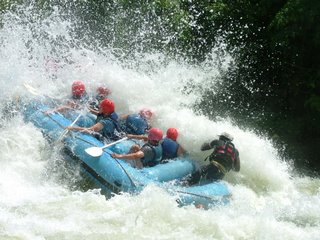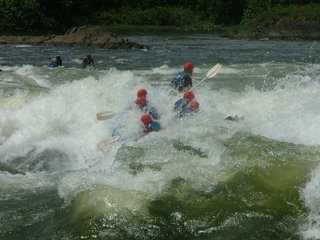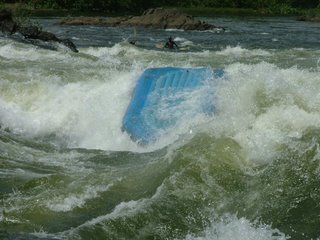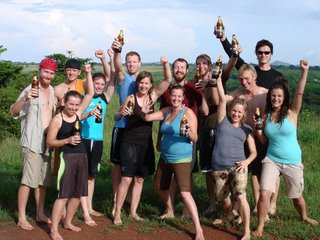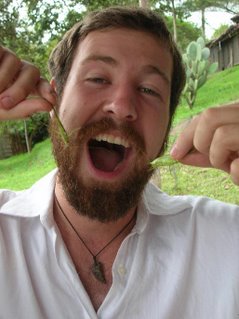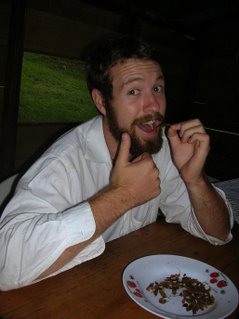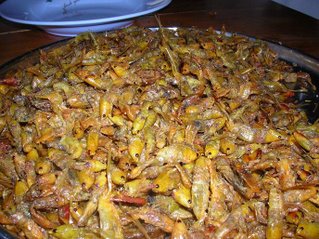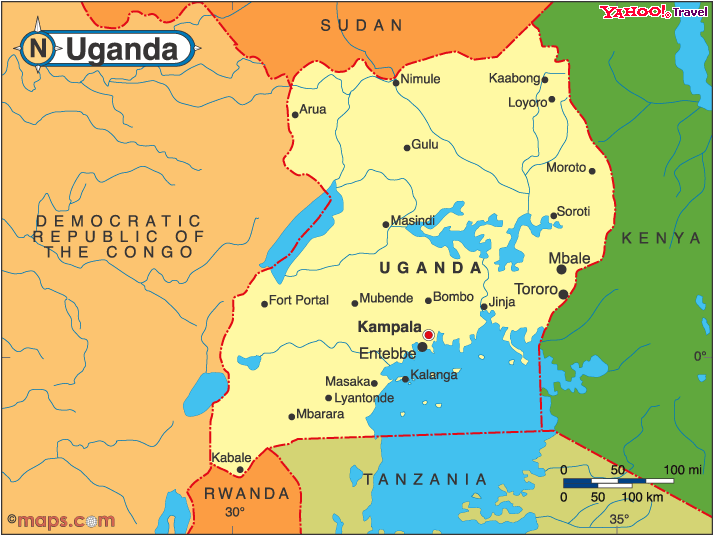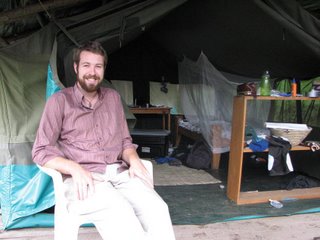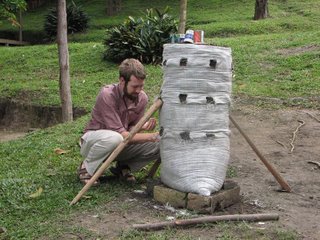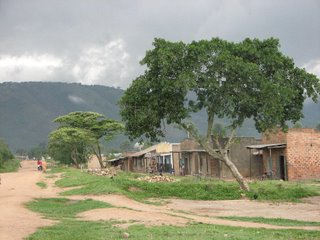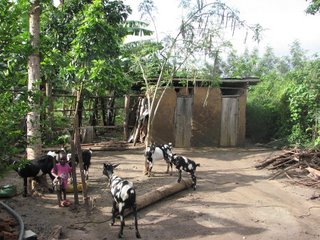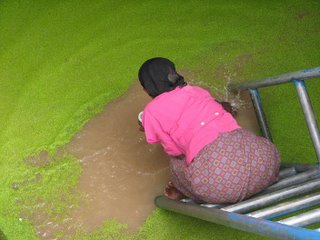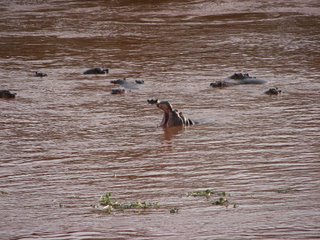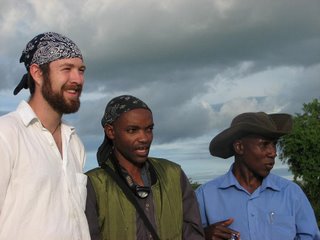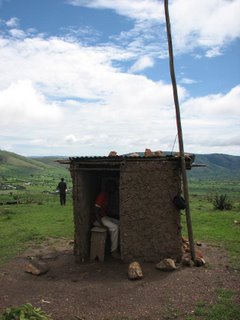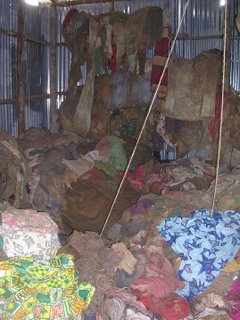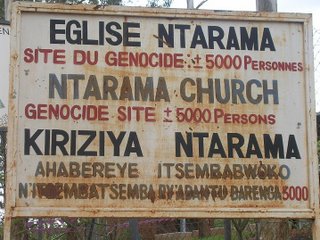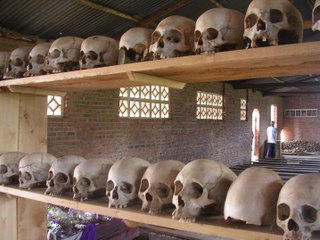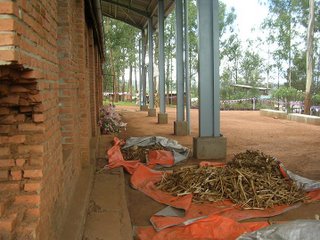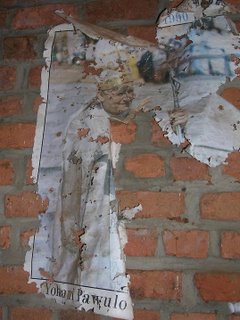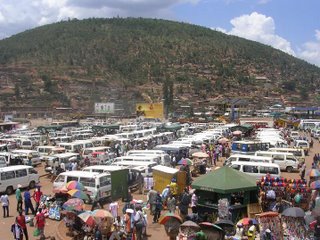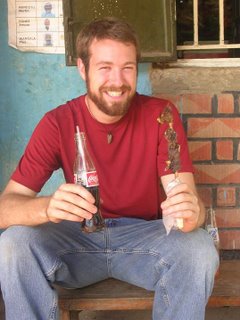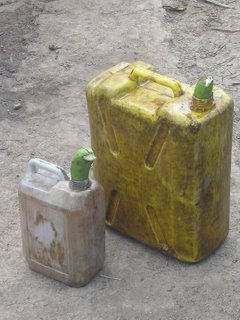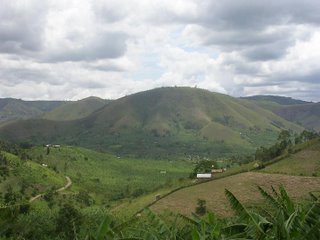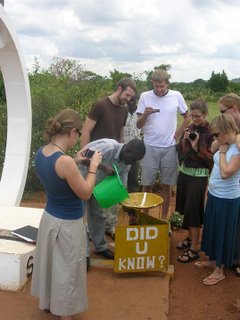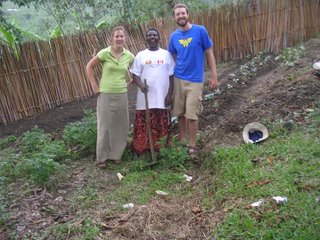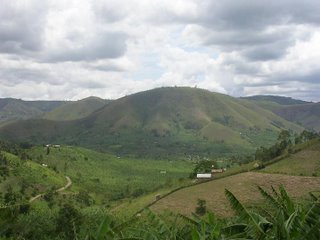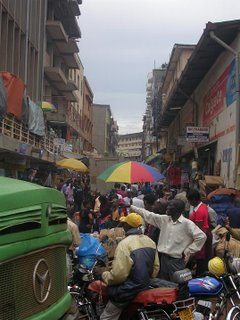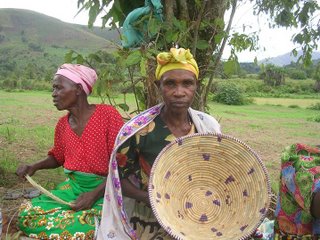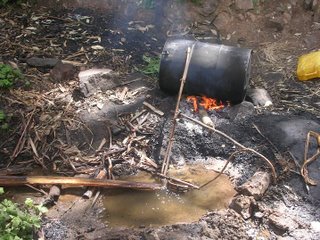California Christmas?
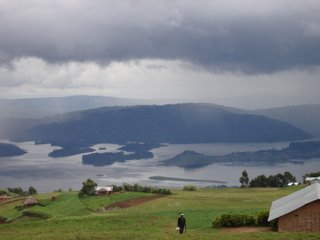
First off, that last post 'bushara blues' really was terrible. I seem to have lost my touch. Lots of stuff happened that week, I don't know why I thought it was so boring. To recap: the girls there have an amazing rope swing that carries the swinger way above the water for a fun drop. We had a good time on that swing, and even learned that when the wooden handle gets wet, the swing becomes dangerously slippery. I was the first to experience this unfortunate effect. Luckily, I just missed the reeds when I slipped off and landed in pretty deep water.
I'll put in a nice healthy rope swing progression first:
 I've got great form here. Notice my tucked legs, just passing over the SHARP reeds below.
I've got great form here. Notice my tucked legs, just passing over the SHARP reeds below.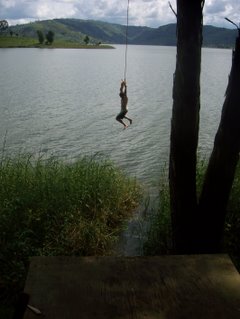 Here I've cleared the reeds and am now preparing for my release. At this point, timing is everything.
Here I've cleared the reeds and am now preparing for my release. At this point, timing is everything.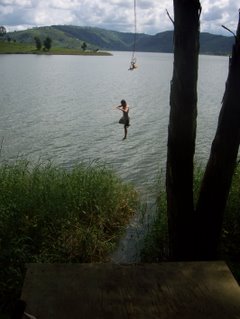 One leg down and one tucked. True Bushara form, this was a perfect 10/10. As graceful as a maribou stork.
One leg down and one tucked. True Bushara form, this was a perfect 10/10. As graceful as a maribou stork. And look at that. Barely any splash at all. Bravo Graeme, bravo.
And look at that. Barely any splash at all. Bravo Graeme, bravo.Now that you've seen what a beautiful swing looks like, let me show you my botched attempt:
 Observe my legs- fully extended, ready to slam into the reeds.
Observe my legs- fully extended, ready to slam into the reeds.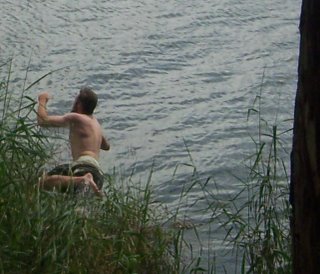 This zoomed in shot shows me just after slipping off of the handle. I tried to maintain form to make the fall seem graceful. I think I succeeded.
This zoomed in shot shows me just after slipping off of the handle. I tried to maintain form to make the fall seem graceful. I think I succeeded.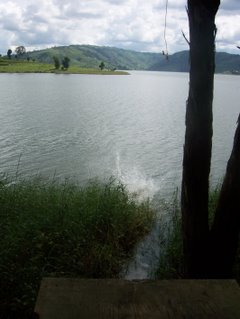
A large splash accompanied by a reed-scratched body and a water slapped chest and face. Lesson learned.
Aside from the rope swing, I was also treated to 1st world conveniences like an oven! Still no electricity or running water, but at least we were able to cook Western food. That was pretty sweet actually. Bryony and Emily sure make a mean mac and cheese (which uses an entire wheel of gouda) and a pretty delicious cocunut milk curry as well. Some members of our little threesome even managed to taste their curry twice, sharing it with the brick patio after some poor decisions. And no, for once, it was not me!
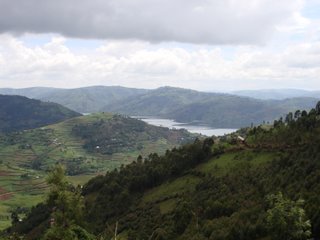
Another fun aspect of Bushara was all the insect life. Emily and Bryony have a permanent shoes policy, which pays off whenever you hear a big CRUNCH. Centipedes, spiders, cockroaches were the main culprits. I made sure to do a bug sweep before bed, but Bryony is the one that should have been concerned. She found a nasty spiders nest in one of her skirts one morning. yuck!
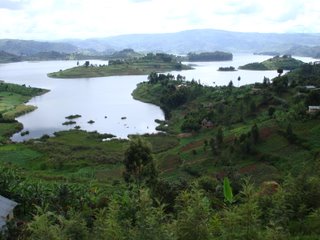
On the drive back from Kabale to Mbarara, we were asked by ACTS to check out a medical facility that would potentially act as the hospital for ACTS staff in emergencies. Good things had been heard about Kasiizi hospital, so we agreed to have a look. We drove for about 1/2 hour or 45 minutes outside of Kabale, then turned onto a dirt road. We bumped along this road for about 1.5 hours, stopping often to ask locals if we were going the right way. As usual, most had no idea what we were saying, so we continued along hoping that we were headed in the right direction. We finally did reach the hospital, and when we turned the corner and it came into view we were all amazed. It was by far the nicest hospital I'd seen in Uganda. It had multiple wings, one which was two stories tall! It boasted a maternity ward, operating room, dental clinic, and most impressively, a mental health clinic. That amazed us as the care for mental health in Uganda is essentially non-existant. Moses (who I will tell you about in a minute) told us a story about a man who was chained up in a shed because he had a mental health problem. The community didn't know what to do with him, so they chained him up and threw him food (sadly, a lot of the world deals with menatl illness in this way). But, thanks to the Kasiizi mental clinic, the man was councilled and given medication and is now pretty much fine. We were guided around the facilities by a 75 year old British nurse named Hazel. She had come to Uganda to work for 6 months, but had stayed for 8 years. She led us to meet with a Ugandan man named Moses, who was the administrative director. When I introduced myself, his first question was if I spelld my name graham or graeme. I was stunned. Most of you people think 'graeme' is a ridiculous way to spell my name, but this Ugandan guy knew all about it. Turns out he was UK educated, so his english was great and we had a good visit with him.
That week wasn't so bad afterall. I'm now back in California fighting off jet lag (11 hour difference is pretty rough) and trying to ignore the crazy holiday madness. It's a bit of reverse culture shock, coming from a place so poor and being dropped back into our Western consumer culture. I saw an ad for a plastic christmas tree with fiber-optic needles and an eiffel tower shaped base equipped with an MP3 player. Only $295! What the hell? Light switches are taking a little getting used to. It's amazing to walk into a room and summon light at any time. Magical! Showers here take a ton of water. I can't believe how much water comes out of my shower here, especially since I used to consider it a shower with very low pressure. Not to mention I can control exactly how hot or cold I'd like the water throughout my shower. Our toilets have perfectly clean drinking water in them. Today (when I woke up at 5:00am) I started to look for matches to light our stove, then quickly realized we have electric burners. I saw a box of bottled water and wondered why we have any bottled water at all. Perfectly clean water comes right out of the taps! Carpets feel amazing to bare feet, no more cold, sticky, dusty cement. Coffee! I got crazy shakes when I had a capuccino at Heathrow, so I'm working my way back up, starting with decaf. I have meal jet lag as well. This morning I really wanted a big plate of vietnamese food. The place didn't open till 9 though, so I was four hours too early. That was kind of wierd. Cars drive on the right side again! Most cars are newer than 1995, and there are no boda bodas anywhere! I had to pay $25 for a cab in London, where as in Mbarara I would have paid 70 cents for a longer distance on the back of a motorcycle, with the added benefit of sunshine and open air. Take me back to Uganda!
Here are a whole bunch of pictures. I put them at the bottom so you'd all actually read the text. I'm back in boring North America now, so the blog will come to a close. Hope everybody enjoyed the posts, and I'll let you all know when I get to go on another crazy trip! Lastly, I'd say to everyone reading this that if you haven't had a chance to go to a place like Uganda, do it as soon as you can. I learned way more in the last couple months than I have in years here!
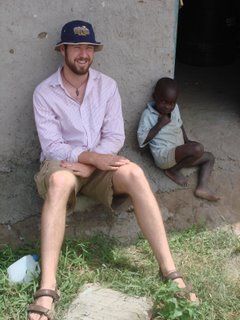
Above is me in Kikagati with one of Ezra's kids (I think....).
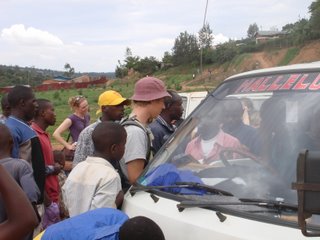
This is Joel, our Quebecois, bartering over a mutatu ride in Kigali. He was surrounded by everyone within one square mile. They all needed to hear his beautiful Quebecois french....or maybe they were mesmerized by his carefree golden curls...
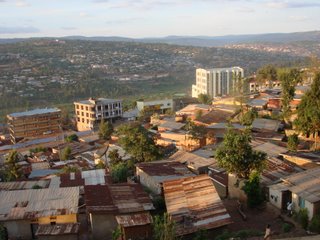
This is a picture of downtown Kigali, and was the view from our hotel room.
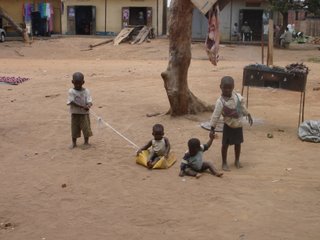
We saw these kids near the border of Tanzania. The game was to drag the kid around on the jerry can sled (or maybe wagon?). Pretty cute. Behind them you can see a goat hanging from the tree, ready to be grilled up and served on a stick.
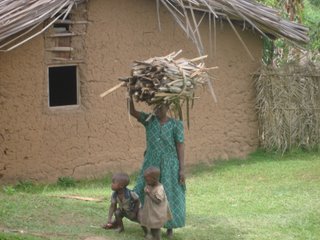
A common sight around any of the rural areas. Little kids hanging out with mom.
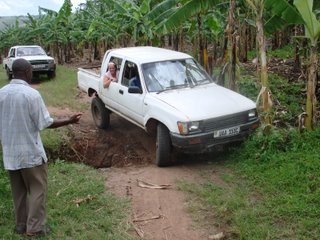
One of the precarious crossing. On either side of the truck's wheels was a huge drop into a stream. It took some creative driving to get through that one.
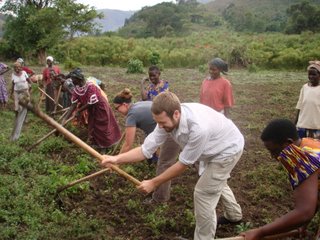
Here I am gardening with the Rubingo widows group. They think white people using hoes is absolutely hilarious. They're probably right.
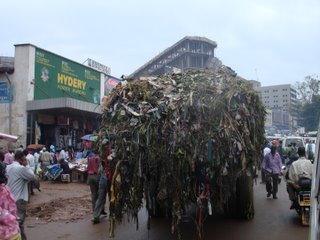
This is a pile of garbage on a truck in Kampala. Sweet!

Here are a couple people banging on big giant drums to call people to church. If I remember correctly (which I do) this service was at Kashenyi, near Rubigno, and lasted close to 8 hours. I also remember eating lunch here, and my goat still having its fur.

